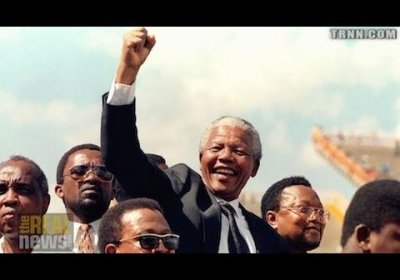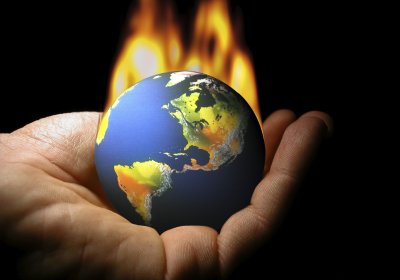 Wits students protest in Johannesburg against a proposed tuition fee hike tuition fees on October 15.
A historic victory over neoliberalism in South Africa was won on October 23, after the most intense three-week burst of mobilisation in the country since liberation from apartheid in 1994.
Wits students protest in Johannesburg against a proposed tuition fee hike tuition fees on October 15.
A historic victory over neoliberalism in South Africa was won on October 23, after the most intense three-week burst of mobilisation in the country since liberation from apartheid in 1994.
Patrick Bond
 Wits students protest in Johannesburg against a proposed tuition fee hike tuition fees on October 15.
A historic victory over neoliberalism in South Africa was won on October 23, after the most intense three-week burst of mobilisation in the country since liberation from apartheid in 1994.
Wits students protest in Johannesburg against a proposed tuition fee hike tuition fees on October 15.
A historic victory over neoliberalism in South Africa was won on October 23, after the most intense three-week burst of mobilisation in the country since liberation from apartheid in 1994.
The great African revolutionary Amilcar Cabral offered the famous injunction 50 years ago: “Tell no lies and claim no easy victories.” This advice hits at the temptation of back-slapping vanity.
The leading spokespeople for the 41-million strong clicktivist team from the Avaaz NGO need to remember Cabral. They over-reached ridiculously in praising the Group of 7 meeting of seven rich nations held in Bavaria on June 7 and 8.
Avaaz wrote: “Many told us it was a pipe dream, but the G7 Summit of leading world powers just committed to getting the global economy off fossil fuels forever!!!
'Mandela led fight against apartheid, but not against extreme inequality.' Patrick Bond spoke to Real News Network on December 5. Read the full transcript.
There is no political will among rich nations to find funding for developing countries experiencing the brunt of changes in global weather patterns, South African Professor Patrick Bond, an analyst and activist on climate change, told the Inter Press Service as the United Nations Conference of Parties on Climate Change met in Doha.
The talks took place in the capital of Qatar from November 26 to December 7.
“One of the things you learn as an anthropologist, you don’t come in and change the culture,” Dartmouth College president Jim Yong Kim told wealthy alumni when contemplating the institution’s notorious hazing practices, prior to US President Barack Obama’s request in February that he move to the World Bank.
Kim’s Harvard doctorate and medical degree, his founding of the heroic NGO Partners in Health and his directorship of the World Health Organization’s AIDS division make him the best-educated, most humane World Bank president yet.
The Mercury, Nov 22 -- There they fell during 2011, one after the other in past-their-prime domino descent.
Zine El Abidine Ben Ali from Tunis, Hosni Mubarak from Cairo, Dominique Strauss-Kahn from the International Monetary Fund (IMF), Muammar Gaddafi from Tripoli, Georgios Papandreou from Athens, Silvio Berlusconi from Rome, US football guru and sex-crime cover-upper Joe Paterno from Penn State University. Media baron Rupert Murdoch, soccer supremo Sepp Blatter, Syrian tyrant Bashar al-Assad and Yemeni dictator Ali Abdullah Saleh looking decidedly shaky, too.
Will the host city for the November-December United Nations Climate Change Conference (COP17) clean up its act?
The August 23 launch of a major Academy of Science of South Africa (Assaf) report, Towards a Low Carbon City: Focus on Durban, offers a chance to test whether new municipal leaders are climate greenwashers.
Will they try to disguise high-carbon economic policies with pleasing rhetoric, as their predecessors did?
The two major civil service unions on strike against the South African government have vowed to intensify pressure in a struggle pitting more than a million workers against a confident government leadership fresh from hosting the World Cup.
Along with many smaller public sector unions, educators from the South African Democratic Teachers Union (SADTU) and nurses from the National Health and Allied Workers Union (NEHAWU) have picketed schools, clinics and hospitals, leading to widespread shutdowns from August 18.
Acting against our alleged “ambush marketing” and “incitement”, the South African Police Service, newly augmented with 40,000 additional cadre for the World Cup, detained several of us in Durban on July 3.
We were exercising freedom of expression at our favorite local venue — the South Beach Fan Fest.
Wearing hidden microphones to tape discussions with police leadership, what we learned was chilling.
On June 11, South Africans will start partying like no time since liberation in April 1994. It is a huge honour for our young democracy to host the most important sporting spectacle short of the Olympics.
The ordinary people who have worked hard in preparation deserve gratitude and support — especially the construction workers, cleaners, municipal staff, health-care givers and volunteers who will not receive due recognition.
But balancing psychological benefits against vast socioeconomic and political costs is vital.
In an indication that the global climate justice movement is becoming broader, there is now intense opposition to a climate-destroying energy loan for South Africa.
World-renowned political organiser and one of Africa’s most celebrated poets, Dennis Vincent Brutus, died in his sleep early on December 26 in Cape Town, aged 85.
- Previous page
- Page 2
- Next page








